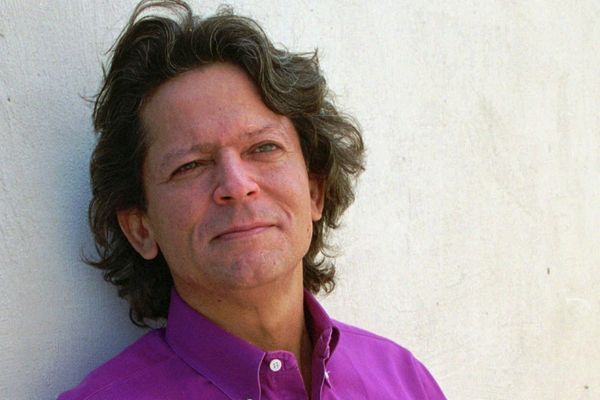
When I ran as an independent in the seat of Caulfield last year in Victoria’s state election, one of my major policy platforms was integrity. You don’t need to be a rocket scientist to see that many Australians have pretty much lost faith in politics. Most just see politicians as out for themselves, not much help, even a bit shady.
In all Australian parliaments, state and federal, integrity is in limited supply. Extensive lobbying is prevalent, providing relatively easy access to influential interests such as major corporations and consulting firms, and easy access for advocates of gambling rights and developers. Lobbyists are everywhere, with minimal regulation, and the policies they push certainly do not benefit vulnerable Australians struggling with the costs of living and housing.
So seeking to do politics differently, I advocated strongly for integrity, emphasising the need for parliamentary legislation to severely limit all lobbying funds.
Integrity is not just limited to lobbying on local issues. Some politicians are also perceived to hold biased views on foreign affairs due to lobbying efforts by foreign nations. In the past few weeks since the October 7 Hamas attacks and Israel’s siege in Gaza, considerable attention has been given to Israel’s lobbying within Australia with not a whole lot of nuance, so here’s an inside account of what occurs on some of these trips.
In 2016 I accompanied and helped organise a Victorian parliamentary delegation to Israel and the Palestinian territories. The flights and accommodation were paid for by the Victorian Parliament, but some activities were organised in conjunction with the Australia Israel Jewish Affairs Committee (AIJAC) as part of its Rambam Israel Fellowship Program.
At the time, I was working as a political adviser and staffer for Marsha Thomson in the Victorian Parliament, a former co-chair of the Parliamentary Friends of Israel Group. Given my knowledge of the region and my ability to speak Hebrew, I was invited along as a support staffer on the five-day trip.
According to Victorian parliamentary rules, all 128 state MPs are entitled to a $10,000 parliamentary travel allowance for trips relating to either parliamentary or electorate business. Former premier Daniel Andrews warned government MPs back in March this year against taxpayer-funded travel given rising cost-of-living pressures.
But putting the important issue of taxpayers’ funds and my questions around integrity aside, the 2016 trip was not a pushy pro-Israel propaganda tour and was way more nuanced than many of the sweeping assertions some observers have made.
Although it conformed to parliamentary regulations, in my view allowing lobbyists to cover expenses for any parliamentary delegation undermines the integrity of the process. Parliamentary delegations to any country are paid for by the taxpayer, and must be linked to official parliamentary business. In Victoria, lobbyists can pay for aspects of these trips, including meals and events.
From a Victorian government perspective, the trips must be grounded in concrete business and innovation learning opportunities. The purpose of the delegation I coordinated was not focused on trying to turn any of the 10 Labor politicians into Zionists or pro-Israel mouthpieces — rather, it was focused on technology and innovation. The study tour I helped design had a focus on bringing back original ideas for Victoria’s Parliament to consider relating to agriculture, health research and innovation.
Politicians could request visits to any sites or groups they wanted, and I helped organise some requests, including visiting a kibbutz that specialised in drip irrigation technology, a start-up innovation incubator for budding tech engineers, and a meeting with Tel Aviv University to hear about health research grants that incentivise new cures for diseases. I was not employed by any lobby group. I worked only for the Victorian Parliament.
The 10 state MPs who came on the trip have limited influence over Australian foreign policy, but still met with Palestinians, went to a refugee camp in Bethlehem, heard from Palestinian journalists and visited an Arab village in the north of Israel. They also visited the Western Wall and the Church of the Holy Sepulchre, Yad Vashem, Israel’s Holocaust Museum, and met Israeli officials and trade unionists. AIJAC organised many of these visits.
While I would prefer to outlaw almost all lobby groups in our parliaments, it is genuinely disheartening to see these accusations almost exclusively directed at trips politicians take to Israel without the full context. Israel is an important Australian ally, and has deep strategic partnerships with Australia in innovation, trade and business.
But if we’re addressing undue influence and seeking to establish proper controls to uphold integrity around lobbying in Parliament, and preventing vested interests from prevailing over the interests of everyday people, then I’m all in favour of regulation, starting with the new integrity laws that would have strengthened regulations around lobbying that the Victorian Labor government chose to block in June. These laws would have prevented lobbyists from being appointed to public entity boards that relate to their line of work, and laws that would have minimum waiting periods for MPs to transition to lobbyists after finishing up in Parliament.
According to a recent analysis run by The Age, almost 65% of lobbying firms registered in Victoria have lobbyists on their books who are former MPs, ministerial staff or party officials. So clearly this is an issue that’s far bigger than lobbying on Israel.
Readers, we want to hear from you — especially while our comments are closed due to our website upgrade. Send us your thoughts on this article to letters@crikey.com.au. Please include your full name to be considered for publication. We reserve the right to edit for length and clarity.







